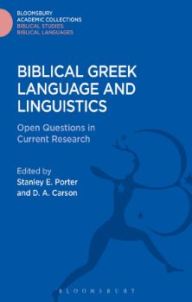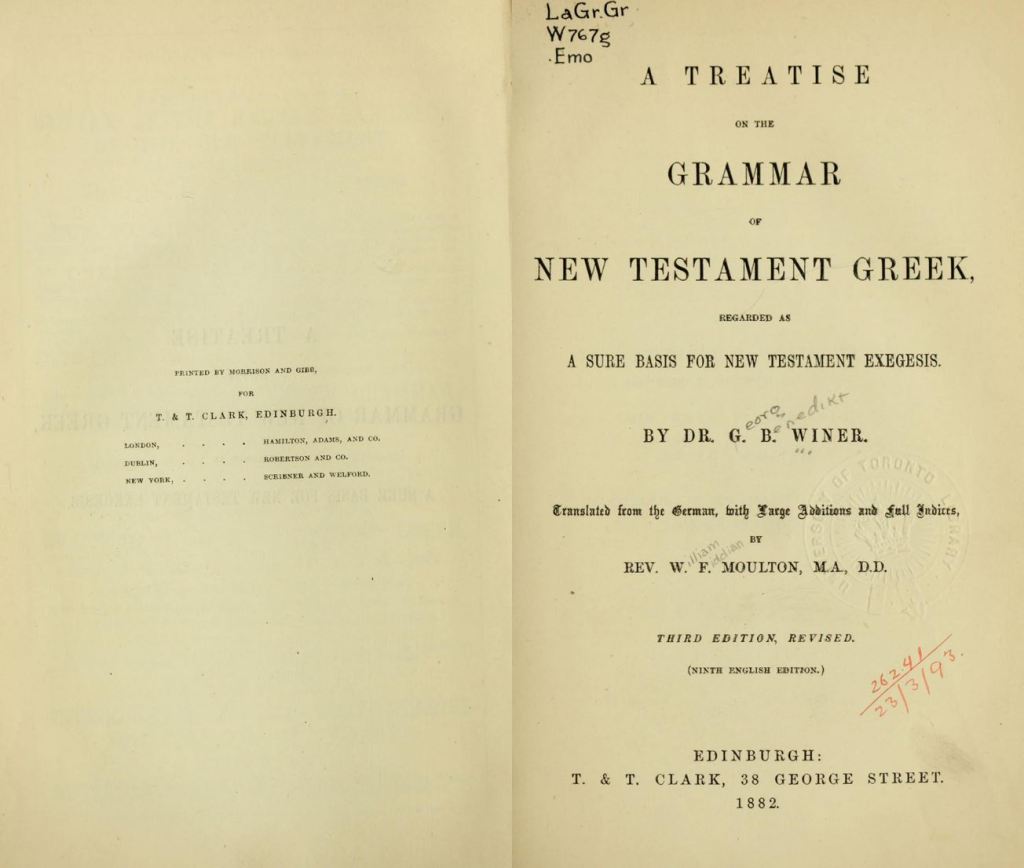The difference between Porter and those he has convinced (the “tenseless” side) relative to the rest of us (the “both tense and aspect” side) is not merely an issue of the empirical linguistic data.
It’s far more complicated than that.
A while back, I wrote up an analysis of tense and aspect in the 1882 edition of William Moulton’s translation of Winer’s Greek grammar. In that discussion, I made the observation that Porter had treated Moulton-Winer unfairly in his criticism of how certain usages of the Greek present imperfective are explained in the grammar. I won’t go back over the question here. My analysis is available in the link above, though it’s important that you read the comments on that post as well, since they’re central to the issue.
New Testament Greek grammar is broken. And nobody seems interested in trying to fix it.
But eventually I realized that Porter was not intentionally misrepresenting Moulton-Winer on Porter’s part, a realization that was driven home for me while rereading some of the papers in the JSNTSupp volumes from the 1990s. In his critique of Fanning’s position, he writes:
Fanning presents a revisionist view of the history of verbal aspect, going to great lengths to preserve the traditional categories and terminology. He stresses his belief that the comparative philologists of the nineteenth century were in actual fact discussing verbal aspect, even if they did not call it this or recognize it as such (Porter 1993, 36).
I hope it goes without saying that it is Porter’s view of the history that I view as revisionist, rather than Fanning. But the fact that Porter views Fanning’s literature review as “revisionist” goes an incredibly long way in explaining how Porter’s reading of Moulton-Winer (1882) arose.

So on that basis, should we consider Porter’s discussion of Moulton & Winer (1882) as an honest one? Yes. We should. Does that make it right? No, it doesn’t. I think the discussion fundamentally misunderstands these old grammars and the context they were written in. And Porter would likely say the same about my own analysis. For the lack of a better turn of phrase, our “world-views” are simply so dramatically different. This isn’t an unusual or exceptional instance. I can multiply the differences in how we read old grammars on tense and aspect going back centuries. At no point are we on the same page in terms of historical interpretation of research.
And in that context here lies the rub: each side of this “debate” (true debate implies actual engagement and there isn’t any) reads an entirely different history of Greek grammar and views the other as revisionist. How can there be any substantive discussion about language data or linguistic method if we cannot even agree on the history of research? New Testament Greek grammar is simply broken. And nobody seems interested in trying to fix it. So where do we go from here?
I’m not sure I know.
Works cited:
Porter, S. E. 1993. “In Defence of Verbal Aspect.” Page 26-45 in Biblical Greek language and linguistics: Open questions in current research. Sheffield: Sheffield Academic Press.
Winer, Georg B. and William F. Moulton. 1882. A Treatise on the Grammar of New Testament Greek. 3rd ed. Edinburgh: T&T Clark.
